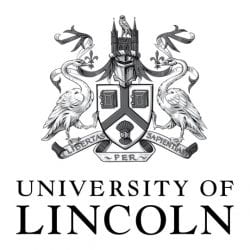Progress has been slow in achieving deeper collaboration between employers and universities in Science, Technology, Engineering and Mathematics (STEM) education in the UK, a new report by University Alliance and the University of Lincoln reveals today.
This has far-reaching consequences for the Government’s plans to drive up productivity and growth in our cities and regions. As skills gaps and shortages vary from region to region, ‘working locally’ is key to success.
However, increasing the levels of collaboration and engagement between employers and universities requires substantial and long-term investment as well as a more stable policy environment.
Crucially, it also needs greater incentives for employers. This means encouraging them to look beyond research collaborations and engage with other kinds of technical and vocational provision within universities to improve the quality of STEM graduates.
The report, Mind the Gap: Engaging employers to secure the future of STEM in higher education, concludes that universities should embed employer engagement activity at senior levels, moving beyond initial faculty level relationships with employers and the enthusiasm of individual staff.
The new publication, based on research commissioned by University Alliance on behalf of the University of Lincoln as part of a HEFCE Catalyst-funded project, will be launched at a high profile event in the House of Commons today.
Maddalaine Ansell, Chief Executive of University Alliance, said: “Employers want graduates with the knowledge and skills to hit the ground running and help their businesses grow. By collaborating with universities on developing courses and delivery, they can secure the workforce they need. “We need to speed up progress to fill STEM skills gaps that continue to have a serious impact on the UK’s economy. The assessment of teaching quality in universities, including the proposed Teaching Excellence Framework, could encourage this behaviour by recognising and rewarding employer engagement in education provision.
“At the same time, substantial and long-term investment, policy stability, and crucially, incentives for employers, are essential to ensure the right level of collaboration and engagement between employers and universities.”
Professor Mary Stuart, Vice-Chancellor of the University of Lincoln, said: “Successful employer engagement arises from identifying the needs of organisations. Local and regional groups such as LEPs are in an ideal position to play a key strategic role in ensuring companies and the wider business community work together.
“Local Enterprise Partnerships and the newly emerging local developments such as the Northern Powerhouse and Midlands Engine are increasingly putting the skills agenda at the heart of their strategies for growth providing a forum for universities and businesses to work together to ensure regional skills needs are met.”
While there have been numerous policy reports that have looked at how universities can best support collaboration with business on applied research and knowledge transfer, employer engagement in educational provision – i.e. course development and delivery – within the university sector is less understood.
Mind the Gap: Engaging employers to secure the future of STEM in higher education aims to provide key insights which the higher education sector, businesses and government can use to improve and increase employer-engagement to fill STEM skills gaps. Read the report in full at: http://www.unialliance.ac.uk/wp-content/uploads/2015/10/Mind-the-gap-web.pdf









